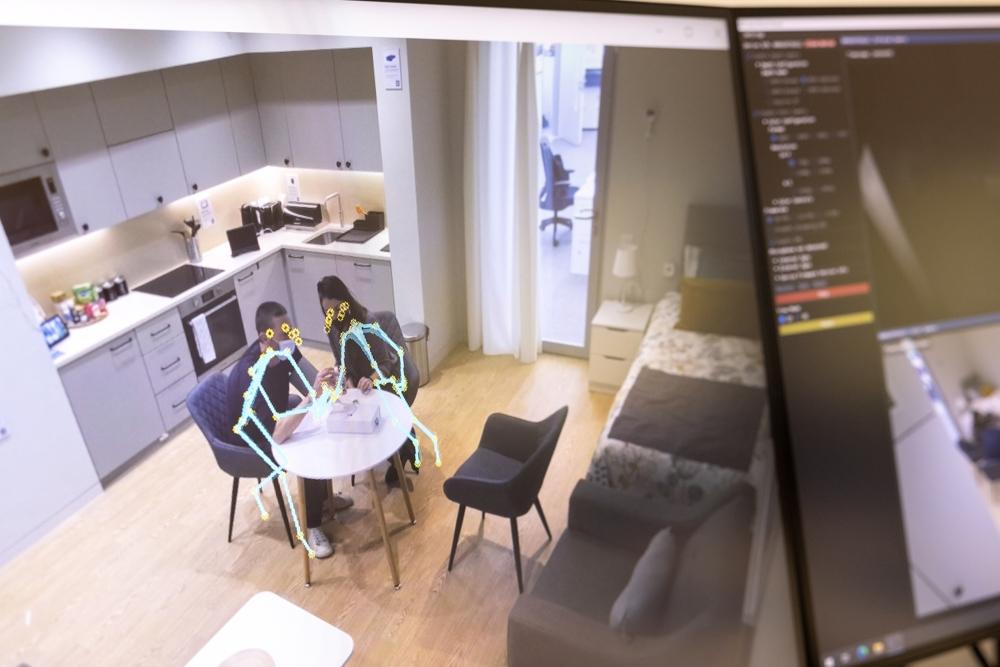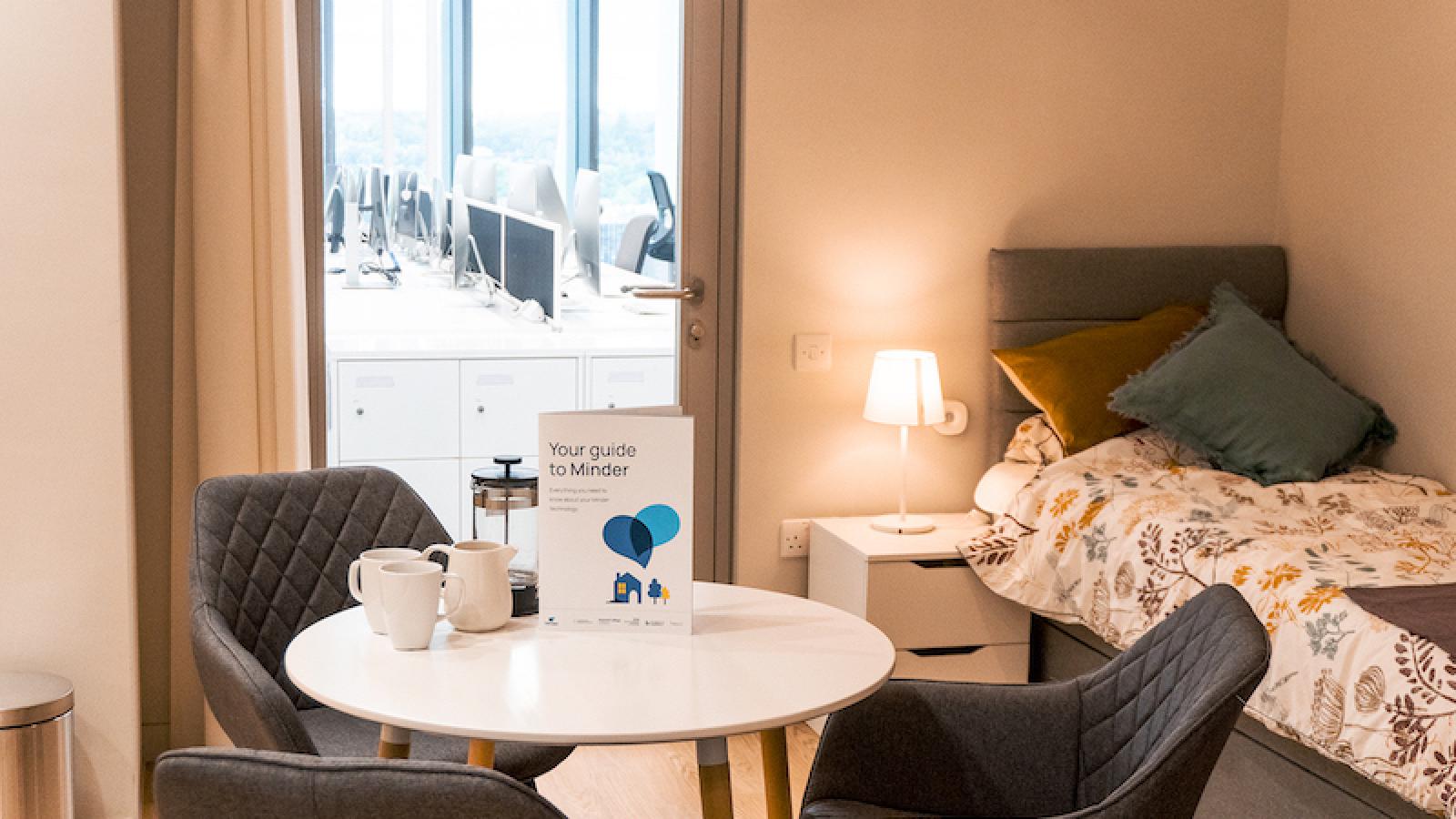The UK DRI is to conduct a new two-year study to prepare its flagship digital care platform, Minder, for integration with the NHS and social care services. The study, funded by medical research charity LifeArc, will pave the way for a new era of digitally enabled, community-based care for people living with dementia, empowering the NHS and social care services to provide care of the highest quality to people with dementia in their own homes.
Minder is a home monitoring platform that harnesses recent advances in AI and digital technology to provide in-home support for people living with dementia and their carers. The platform makes a new model of social care provision possible, where an in-home system is directly integrated with public services, with digital alerts monitored by a team embedded in the NHS. This enables common problems like infections to be detected and addressed early, preventing escalation that could lead to hospitalisations, and enhancing wellbeing and independent living for people with dementia.
hospital beds in the NHS are occupied by a person with dementia
The Minder platform has been developed by the UK DRI Centre for Care Research & Technology, led by Prof David Sharp. The Centre brings together a multidisciplinary team of data scientists, neurologists, engineers, occupational health therapists, sleep scientists and more, who are guided in their work by people with dementia and their caregivers. The central goal is to empower people with dementia and their caregivers by creating dementia-friendly smart homes – intelligent environments that transform and personalise care.
With an ageing population in the UK, dementia prevalence is set to rise to 1.4 million by 2040. Transforming care provision is necessary and urgent, to promote wellbeing into old age and ensure our health and care systems can meet future additional demand. People living with dementia are disproportionately likely to be hospitalised, and currently 1 in 4 NHS hospital beds are occupied by a person with dementia. In many cases, a hospitalisation may sadly cause a deterioration of dementia symptoms and precipitate a crisis point, at which the person cannot be discharged home and instead moves into social care. However, around a fifth of hospitalisations of people with dementia are due to potentially preventable causes, such as falls, neuropsychiatric problems or infection. Detecting and addressing these problems early can reduce hospital admissions, with substantial benefits for both people with dementia and public services.
of hospitalisations of people with dementia are due to potentially preventable causes, such as falls, neuropsychiatric problems or infection
"It gives me peace of mind to know my dad is safe."Minder participant whose father was diagnosed with Alzheimer's and vascular dementia
Following a successful pilot phase of the Minder platform (currently in about 100 private homes), this new study, funded by LifeArc, will ready Minder for integration with existing NHS services, develop a new protocol for linking and data sharing, and assess the clinical, economic and patient benefits of the model. A new service model for Minder-NHS integration will be co-designed with people living with dementia and their caregivers, to ensure the experience of those who will use the platform is of central importance throughout. The project is due to conclude in April 2026.

Prof David Sharp, Centre Director at the UK DRI Centre for Care Research & Technology:
“The Minder platform was created to provide people living with dementia with the highest quality of personalised care, in the familiar environment of their own home. After a successful pilot phase, we’re now ready to put our innovative model to the test on a larger scale and integrate it with existing NHS services to ensure wraparound support.
I’m grateful to the people living with dementia and their caregivers who continue to guide the project, and delighted that this new funding from LifeArc will enable more people with dementia to receive personalised, in-home support via Minder.”
Dr Dave Powell, Chief Scientific Offier at LifeArc said:
“AI and advanced digital platforms have the potential to revolutionise dementia care. The Minder platform will play a key role in allowing people with dementia to live independently in their own home for longer, and we’re proud to support the project as part of our commitment to improving the lives of patients with neurodegenerative disease by investing in new tests and treatments."
Hear more from Minder participants on their experiences below.
Article published: 02 July 2024
Photography credit: Thomas Angus
